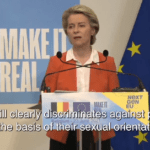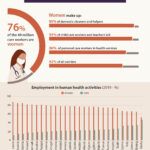Homophobic statements constitute discrimination in employment and occupation when they are made by a person who has or may be perceived as having a decisive influence on an employer’s recruitment policy.
In the judgment in Associazione Avvocatura per i diritti LGBTI (C-507/18), delivered on 23 April 2020, the Court held that statements made by a person during an audiovisual programme, according to which that person would never recruit persons of a certain sexual orientation to that person’s undertaking or wish to use the services of such persons, fall within the material scope of Directive 2000/781 (‘the anti-discrimination directive’) and, more particularly, within the concept of ‘conditions for access to employment …or to occupation’ within the meaning of Article 3(1)(a) of that directive, even if no recruitment procedure had been opened, nor was planned, at the time when those statements were made, provided, however, that the link between those statements and the conditions for access to employment or to occupation within the undertaking is not hypothetical.
In the present case, a lawyer had stated, in an interview given during a radio programme, that he would not wish to recruit homosexual persons to his firm nor to use the services of such persons in his firm. Having taken the view that that lawyer had made remarks constituting discrimination on the ground of the sexual orientation of workers, an association of lawyers that defends the rights of lesbian, gay, bisexual, transgender or intersex (LGBTI) persons in court proceedings brought proceedings against him for damages. The action having been successful at first instance and that ruling having been upheld on appeal, the lawyer appealed in cassation, against the judgment delivered in the appeal, before the Corte suprema di cassazione (Supreme Court of Cassation, Italy), which then sought a preliminary ruling from the Court of Justice on, inter alia, the interpretation of the concept of ‘conditions for access to employment … and to occupation’, within the meaning of the anti-discrimination directive.
After recalling that that concept must be given an autonomous and uniform interpretation and cannot be interpreted restrictively, the Court interpreted that concept by reference to its judgment in Asociația Accept.
Thus, the Court, inter alia, made clear that statements suggesting the existence of a homophobic recruitment policy do fall within the concept of ‘conditions for access to employment … or to occupation’, even if they come from a person who is not legally capable of recruiting staff, provided that there is a non-hypothetical link between those statements and the employer’s recruitment policy.







Leave a Reply